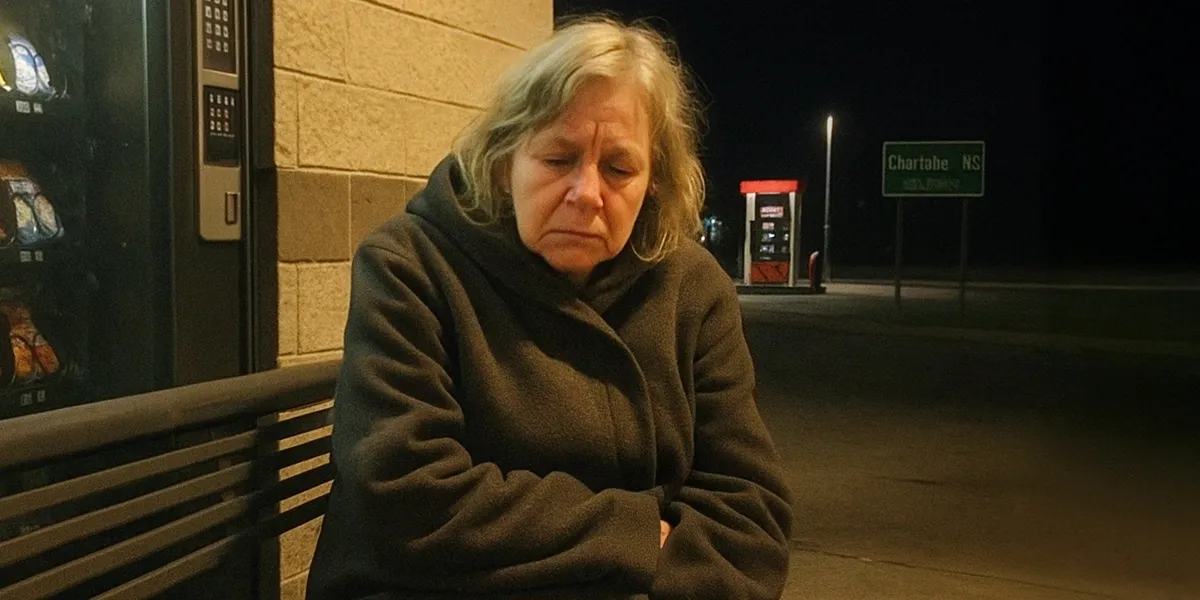When my grandsons left my wife alone at a gas station to go party, I was heartbroken and angry. Laura, my love for 43 years, deserved better than that betrayal. I crafted a plan to teach those boys a lesson that hit deep, turning them into the respectful grandsons I knew they could be.
I’m Arnold, a retired factory worker who spent 43 years working hard to provide for my family—stable home, good education, meals every night. Now, I focus on Laura, my partner through it all, whose warm smile and kind heart still brighten my life. She’s the type to remember every anniversary and volunteer at the food bank. Our twin grandsons, Kyle and Dylan, 23, are smart and charming, but what they did to Laura showed me they needed a serious wake-up call.

Just before Easter, they showed up with a “surprise” for Laura’s birthday—a trip to Washington, D.C., to see the cherry blossoms she’d always dreamed of. They described walks by the river and blooming trees, promising to handle the hotel, meals, everything—if she’d let them borrow her car. Laura cried, calling it the best gift, and I got teary seeing her so happy after years of putting others first. When they said, “Grandpa, this is just for Grandma,” I ignored a strange feeling, thinking they wanted time with her.
Two days later, Laura called at midnight, her voice shaking. She was at a gas station, alone, with no money or car. My heart broke as she explained. The boys had her pay for the hotel, claiming their cards were “broken,” promising to repay her. She covered their food, tickets, even clothes when they “forgot” to pack. They swore it was temporary. On the way home, they stopped for gas, and while Laura paid, they drove off to party, leaving her behind. She waited hours, cold and scared, sitting on a bench, then hiding by a vending machine, thinking they’d come back. They didn’t.
“I’m coming,” I said, my voice firm. I drove four hours, picked her up, and held her tight. On the drive home, she said the boys barely talked to her, stuck to their phones, treating her like a credit card. By the time we got home, I had a plan. Three days later, I texted them: “Grandma and I loved your birthday surprise. We’re taking you on a weekend trip.” They were excited, expecting a luxe getaway.
I’d called my friend Sam, who runs a no-frills wilderness camp for screen-addicted teens. I helped him rebuild his shed last year, so he owed me. “Make it rough,” I said. “No phones, hard work, basic setup.” Sam agreed. We drove three hours to the camp, the boys joking about fancy resorts in the back. When we arrived—dirt lot, old cabins, outhouses—they were stunned. “This is it?” Kyle asked. “Unplug and learn,” I said, smiling.
I took their phones, handed them a schedule: 6 a.m. wake-ups, cleaning latrines, chopping wood, washing dishes, and writing about gratitude. Sunday included mowing lawns and a talk on respecting elders. “This is a joke, right?” Dylan said. I didn’t answer, just gave their bags to Sam and drove off, leaving them with him. Sam called later, saying they complained but worked, especially after a “broken” water heater forced cold showers.
Sunday night, they called from Sam’s phone, voices breaking. “We’re so sorry, Grandpa,” Kyle said. Dylan begged for Laura. She listened as they apologized, promising to change. “Your grandpa knows how to teach,” she said softly. When I picked them up, they looked exhausted, sunburned, and humble. They hugged Laura, tripping over apologies. I made them toast and let their guilt sink in quietly.
A week later, they brought a photo album of the cherry blossom trip—real pictures of the sights, not selfies—with a card: “To our incredible Grandma, we failed you. Never again. Love, Kyle & Dylan.” They repaid all Laura’s money in cash. Now, they take her to lunch, call to chat, and even fixed our gate. They learned respect through a tough, cold lesson that showed them what really matters.


